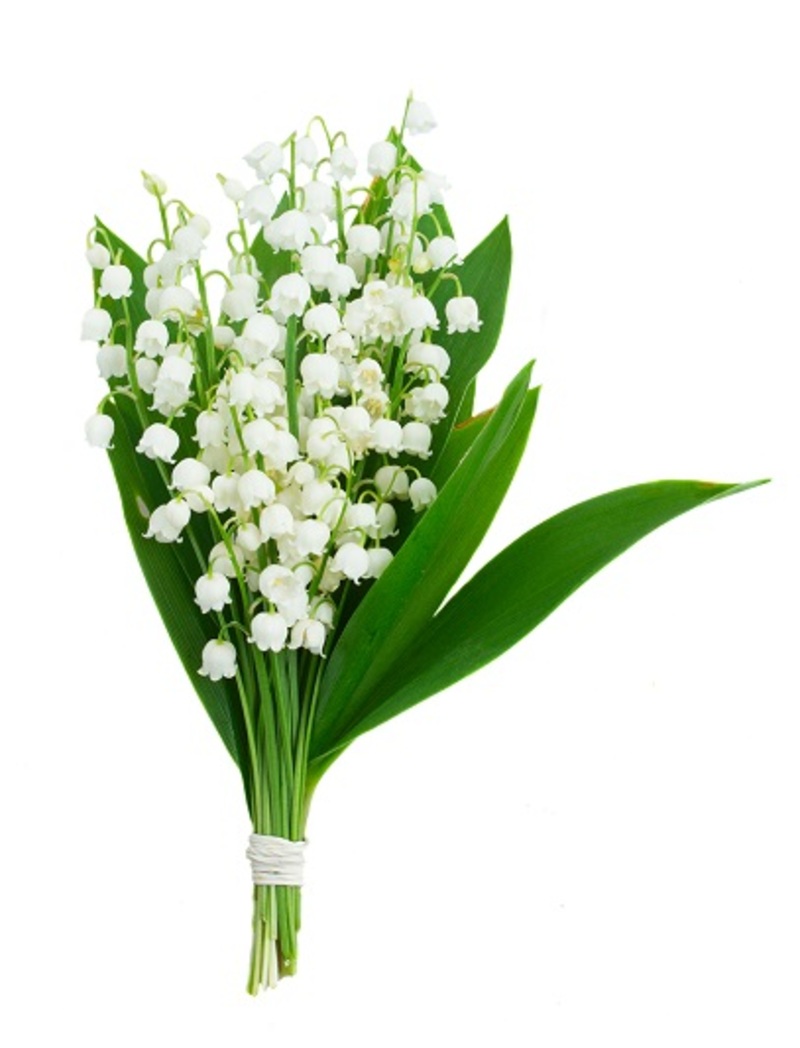Unraveling the Mysteries: What Your Birth Flower Reveals
Posted on 18/08/2025
Unraveling the Mysteries: What Your Birth Flower Reveals
Flowers have spoken a secret language across centuries. From offering comfort to representing fierce love, each bloom whispers its own story. Just as zodiac signs say something about you, so too do birth flowers reveal unique insights about your personality, hopes, and history. But what exactly does your birth flower mean? And how can these traditional floral symbols illuminate secrets about who you are?
Join us as we dig deep into the fascinating world of birth flower symbolism. Unravel the mysteries and uncover what your birth flower, or that of your loved ones, might say about your characteristics and hidden strengths. Discover ways to embrace their ancient messages in your daily life!
What Is a Birth Flower?
The concept of a birth flower is similar to birthstones. Each month of the year is paired with a particular flower, believed to reflect qualities shared by people born in that month. The tradition dates back to Roman times, when flowers played a vital role in rituals and celebrations.
- Historical Significance: Birth flowers have roots in ancient civilizations, folklore, and Victorian floriography--the language of flowers.
- Modern Appeal: Today, birth flowers are used in jewelry, gifts, tattoos, decor, and even wedding themes.
So, what does your birth flower reveal? Let's explore the symbolism, personality traits, and stories behind each monthly bloom!

Monthly Birth Flowers and Their Hidden Meanings
January: Carnation & Snowdrop
Carnation is seen as a flower of love, fascination, and distinction. January-born individuals with this birth flower are known for their resilience, warmth, and loyalty.
- Symbolism: Fascination, love, distinction.
- Personal Traits: Dependable, affectionate, determined.
- Fun Fact: Snowdrops, also associated with January, represent hope and a fresh start.
February: Violet & Primrose
People born in February are linked to the delicate violet, which represents modesty and faithfulness.
- Symbolism: Modesty, virtue, faithfulness.
- Personal Traits: Creative, humble, loyal.
- Interesting Tidbit: Primroses signify eternal love--a fitting touch for the month of romance.
March: Daffodil
The arrival of March brings the daffodil, symbolizing new beginnings and rebirth.
- Symbolism: Rebirth, hope, inspiration, renewal.
- Personality Traits: Optimistic, positive, creative.
- Did You Know? Gifting daffodils in a bunch is considered lucky; a single daffodil symbolizes misfortune.
April: Daisy & Sweet Pea
April's daisy birth flower speaks of innocence and purity. The vibrant sweet pea conveys blissful pleasure.
- Daisy Symbolism: Purity, innocence, true love.
- Sweet Pea Symbolism: Blissful pleasure, gratitude.
- Personality Traits: Cheerful, outgoing, honest.
May: Lily of the Valley & Hawthorn
Those born in May are cherished with lily of the valley--a symbol of humility and sweetness. Hawthorn stands for hope and supreme happiness.
- Lily of the Valley Symbolism: Sweetness, humility, renewed happiness.
- Personal Traits: Gentle, optimistic, nurturing.
- Fun Fact: In France, sprigs of lily of the valley are gifted for good luck on May 1st.
June: Rose & Honeysuckle
A rose as a birth flower signals a romantic at heart. As June's bloom, roses reflect varying emotions via their colors.
- Rose Symbolism: Love, passion, beauty, honor.
- Honeysuckle Symbolism: Devotion, affection.
- Personality Traits: Compassionate, passionate, empathetic.
July: Larkspur & Water Lily
July's larkspur is all about open hearts and strong bonds. In some regions, the elegant water lily is also celebrated.
- Larkspur Symbolism: Positivity, open heart, dignity.
- Water Lily Symbolism: Enlightenment, purity.
- Personal Traits: Supportive, imaginative, energetic.
August: Gladiolus & Poppy
Bold and striking, the gladiolus signifies strength of character and integrity. Poppy also represents remembrance and peace.
- Gladiolus Symbolism: Moral strength, sincerity, infatuation.
- Poppy Symbolism: Imagination, remembrance.
- Personal Traits: Honest, courageous, passionate.
September: Aster & Morning Glory
The aster is a symbol of wisdom, valor, and faith. Morning glory echoes unrequited love.
- Aster Symbolism: Wisdom, faith, love.
- Morning Glory Symbolism: Affection, tenacity.
- Personal Traits: Loyal, intelligent, analytical.
- Interesting Fact: The name 'aster' comes from the Greek word for star, alluding to its star-shaped bloom.
October: Marigold & Cosmos
Vivid and warming, marigolds reflect passion and creativity. The delicate cosmos signifies harmony and balance.
- Marigold Symbolism: Passion, creativity, warmth.
- Cosmos Symbolism: Order, harmony, tranquility.
- Personal Traits: Creative, energetic, balanced.
- Did You Know? Marigolds are used in Day of the Dead celebrations for their vibrant color and strong scent.
November: Chrysanthemum
The chrysanthemum signals loyalty and love. Traditionally, it's a symbol of longevity and joy, prominent in Asian cultures.
- Symbolism: Loyalty, joy, long life.
- Personal Traits: Sincere, trustworthy, cheerful.
- Fun Touch: In Japan, the chrysanthemum is a noble flower, featured in royal crests.
December: Narcissus & Holly
December's cold days are brightened by the narcissus. This birth flower represents hope, wealth, and respect. Holly, another December flower, suggests protection and domestic happiness.
- Narcissus Symbolism: Faithfulness, respect, rebirth.
- Holly Symbolism: Protection, merriment, goodwill.
- Personal Traits: Inspiring, ambitious, optimistic.
What Do Birth Flowers Say About Your Personality?
Birth flowers as personal emblems can convey subtle messages about your best attributes or aspirational qualities. Here's how your birth bloom might influence your view of yourself:
- January (Carnation): You exude resilient grace and dependable affection.
- February (Violet): Your humility and creative mind draw people toward you.
- March (Daffodil): Infused with hope, you inspire others with your optimism.
- April (Daisy): Your cheerful honesty brings light to every room.
- May (Lily of the Valley): Your gentle spirit nurtures lasting relationships.
- June (Rose): Deep emotions and compassion define your approach to life.
- July (Larkspur): Your open heart encourages deep connections.
- August (Gladiolus): People admire your courage in standing up for what's right.
- September (Aster): Your wisdom and loyalty offer grounding in friendships.
- October (Marigold): Creative energy and a passion for life fuel your achievements.
- November (Chrysanthemum): Your sincerity and joy leave a lasting impression.
- December (Narcissus): You inspire hope and renewal in those around you.
How To Use and Celebrate Your Birth Flower
There are many creative ways to incorporate your birth flower into your life, honors its heritage, and deepen your connection to its meaning:
- Home Decor: Use fresh flowers or floral motifs featuring your birth bloom for a personalized touch.
- Gifts: Give thoughtful bouquets, jewelry, or keepsakes inspired by birth flowers.
- Tattoos: Endless inspiration for meaningful ink that reflects your identity.
- Mindfulness Practice: Meditate or journal on the qualities your birth flower represents.
- Celebrations: Include your flower in birthday parties or wedding bouquets for added meaning.
- Garden: Grow your birth flower as a daily reminder of your strengths and nature's cycles.
The Deep-Rooted History of Birth Flower Symbolism
Wondering why birth flower meanings run so deep? The language of flowers (also called 'floriography') peaked in the Victorian era but traces back to ancient Egypt, Greece, and Rome. These cultures bestowed special meaning on each plant, using them in religion, medicine, and as coded messages.
- Ancient Roots: Flowers have marked rites of passage, celebrations, even romantic declarations through symbolism.
- Victorian Flower Code: In the strict social environment of the 1800s, lovers expressed devotion, hope, or sorrow through specific flower arrangements.
- Global Perspective: Different cultures often have unique interpretations for the same blooms.
Example: The chrysanthemum signals death in some European countries but happiness and long life in Japan.
Frequently Asked Questions About Birth Flowers
Do birth flowers differ in different cultures?
Absolutely. While Western birth flower lists are widely recognized, other cultures may associate different blooms, or use native flowers with parallel meanings.
What if I don't identify with my birth flower?
Birth flowers are symbolic, not prescriptive. You might feel a closer bond to another month's flower or find that different blooms resonate more as you grow.
Can I have more than one birth flower?
Yes! Some months offer two flowers, and you're welcome to embrace one or both as you please. Personal preference is always in bloom.
Is knowing my birth flower helpful?
Many people find comfort, inspiration, and a sense of identity in their birth flower and what it reveals. Whether used for reflection, celebration, or fun, these flowers help us connect to nature and tradition in meaningful ways.
Interesting Facts & Tips About Birth Flower Meanings
- Color Counts: Especially with roses and carnations, the color can refine the meaning (e.g., red roses for passionate love, pink for admiration).
- Healing Magic: Many birth flowers--like violet, chamomile (October's secondary bloom), and marigold--have historical uses in herbal medicine.
- Astrological Connections: Some believe birth flowers complement zodiac energies, making them powerful in rituals or as lucky charms.
- Ever-Growing Tradition: Custom birth bouquets are a growing trend for birthdays, anniversaries, and milestone moments.

Embracing the Power of Your Birth Flower
Learning about your birth flower meaning is an invitation to connect with nature, history, and your inner self. Whether you use your birth flower as a source of inspiration or simply enjoy its beauty, these magical blooms offer endless ways to celebrate your individuality.
Unravel the mysteries of your birth flower and let its story unfold through your life. From symbolism and personality traits to creative expressions, let your flower-inspired journey blossom today!
What does your birth flower reveal about you? Whether it's the daffodil's optimism, the rose's passion, or the marigold's creativity, carry its secret language as a daily reminder of your unique strengths.
Final Thoughts on Birth Flowers and Their Revelations
Birth flowers are far more than just pretty petals--they are bearers of messages, traditions, and personal meaning that transcend generations. As you explore the mysteries your birth month flower reveals, you'll find new ways to honor both your individuality and the wonders of nature.
- Incorporate your birth blossom into daily rituals, decor, or gifts for a continuous source of inspiration.
- Explore the meaning behind your family and friends' birth flowers for thoughtful gestures and deeper connections.
- Celebrate the beauty of birth flowers through creativity, mindfulness, and gratitude for the wisdom they share.
Let your birth flower's meaning bloom within you!
Latest Posts
Unraveling the Mysteries: What Your Birth Flower Reveals
Essential Tips for Thriving Hydrangeas: A Gardener's Guide
Peony Flowers: Unveiling Their Symbolism and Color Significance





